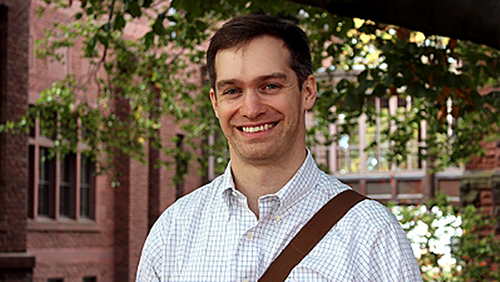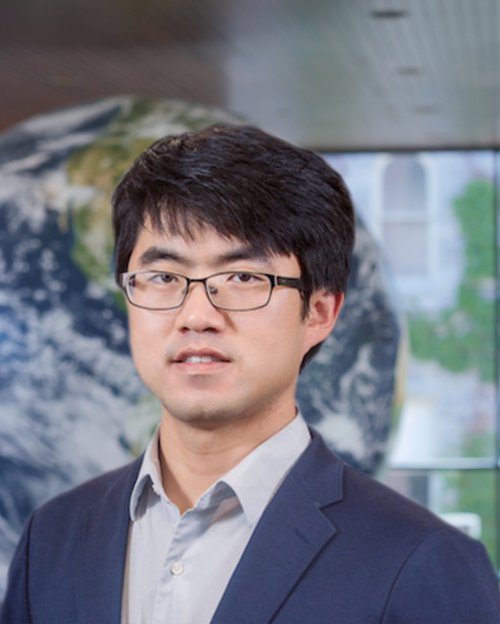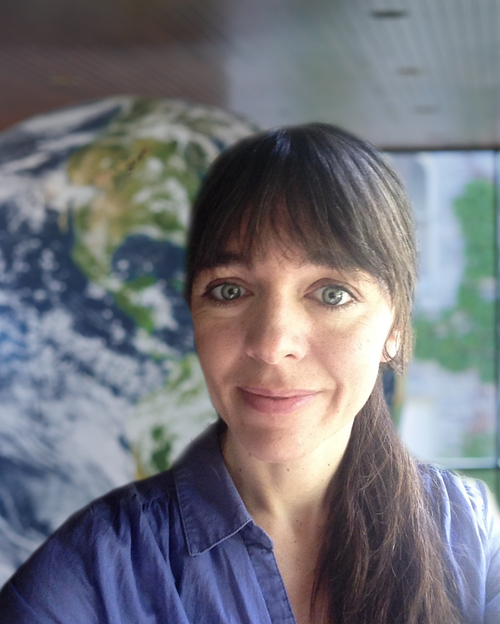Samuel Tuttle – Assistant Professor

I will be joining the Department of Earth and Environmental Sciences this fall as an Assistant Professor. As a hydroclimatologist, I study the distribution of the three phases of water at the Earth’s surface and in the atmosphere, and how it affects hydrological, atmospheric, and land surface processes. This includes moisture and energy exchanges, floods and droughts, and their different physical and biological causes and effects. My interest is primarily in terrestrial water availability, and how it will change across time and space with climate change and land use.
I received M.A. and Ph.D. degrees in Earth and Environment from Boston University, where I conducted research on land-atmosphere interactions, primarily related to soil moisture observations from satellites. After completing my Ph.D., I accepted a postdoctoral research position in the Department of Civil & Environmental Engineering at the University of New Hampshire, where I worked on a NASA-funded project to evaluate the potential of remotely sensed snow and soil moisture to improve flood forecasting in the north central U.S. In 2017, I joined Mount Holyoke College as a Visiting Assistant Professor of Data Science, where I taught undergraduate courses in the Department of Geology & Geography that incorporated data science and modeling into earth science curriculum. At SU, I plan to bring a similar interdisciplinary philosophy to existing and new courses in the Department, including Physical Hydrology and Geostatistics, with the goal of encouraging students to develop skills in statistics, computer programming, and critical thinking, as well as discipline-specific knowledge in earth and environmental sciences.
Untangling the interrelationships between the different components of the hydrological cycle is crucial for understanding the hydroclimate system of our planet and how it might react to changes. My research asks: Where is water stored near Earth’s surface and in the atmosphere, and how much, and how is it changing over time? What impacts does the presence or absence of water have on the broader Earth system, and on humanity? To address these questions, I employ an observation-oriented approach – I examine observational datasets using statistics and other data science approaches, while also employing modeling and simulation studies as useful supplementary approaches. At SU, my research will continue to involve inferences into hydrological datasets, especially at the regional and global scales that are most important for water management and climate adaptation. Some of my current research interests include remote sensing of snow, identification of melting snow and lake ice from satellites, and evaluation of the ability of climate models to accurately represent land-atmosphere interactions. Syracuse is a great place to study these topics (especially snow!). I hope to instill values of interdisciplinary collaboration and creativity in my future research group, which a new master’s student, Madison Woodley, will be joining this fall.
I plan to utilize SU computing resources for my research and will be sharing a new student computing space with incoming professor Tao Wen, which should encourage collaboration among water-focused members of the department. Deploying field instruments in the surrounding region to collect hydrological and meteorological data is also part of my research plan, and the resulting data will be used to support remote sensing and modeling studies.
I am excited to join and contribute to the Department soon!
Tao Wen – Assistant Professor

I will be joining the department as an Assistant Professor in the upcoming Fall 2020. Broadly, my research interests include utilizing geoscience and big data approaches to evaluate the impact of human activities on the environment at varying temporal and spatial scales. I will offer courses in hydrogeology, aquatic chemistry, data sciences, and introductory water science at Syracuse University.
Currently, my research is supported by a Water Resources Research Grant from the Department of the Interior and by the College of Earth and Mineral Sciences Dean’s Fund for Postdoc-Facilitated Innovation at the Pennsylvania State University. Upon starting at SU, I will establish the Hydrogeochemistry And eNvironmental Data Sciences (HANDS) research group. The HANDS group will study the water cycle within coupled human and natural systems at varying spatial and temporal scales as well as the co-evolution of the geosphere and biosphere. We use data mining as well as observational and laboratory approaches and contribute to developing best practices in managing and utilizing large geoscience datasets. I am excited that Favour Epuna will be joining the group in Fall 2020 as a Master of Science student in Earth Sciences. I am actively recruiting undergraduate and graduate students, and post-docs, who have (or are interested in developing) expertise in multidisciplinary subject matter including geosciences, statistics, and computer sciences.
Our water chemistry laboratory in HGL is currently under renovation. In this laboratory, I look forward to hosting some of the existing water chemistry instruments in the department as well as adding a new piece of analytical equipment, i.e., ICP-OES, for water chemistry analyses. I will also share the new computational laboratory with the other incoming faculty member – Dr. Samuel Tuttle.
I earned my Ph.D. and M.S. from the Department of Earth and Environmental Sciences at the University of Michigan in 2017 and 2014, respectively. I received my B.S. in the School of Earth and Space Science at the University of Science and Technology of China in 2011.
I look forward to joining the ‘Snow City’ (the Chinese translation of ‘Syracuse’) University. I am incredibly excited to see what the future holds!
Elizabeth Carter – Assistant Professor

I am excited to join the faculty at Syracuse University with a joint appointment in the departments of Earth and Environmental Sciences and Civil and Environmental Engineering as a tenure-track assistant professor of computational hydrology in fall 2020.
Prior to joining Syracuse University, I was a NASA-USGS interagency postdoctoral fellow working with the NASA Intelligent Systems group, the United States Geological Survey Hydrologic Remote Sensing group, and the National Geospatial Intelligence Agency working on a real-time flood detection tool. I have professional experience in environmental consulting and in disaster response.
My research focuses on the development and application of computational tools that allow big environmental data, particularly satellite imagery, to inform water resources management and response to hydroclimatic disasters. My research has led to improved methods for data-driven forecasting of drought under climate change, development of medium-range empirical hydrometeorological forecasts to improve large reservoir management, and contributions to artificial intelligence software that will be used to automatically detect flooding from space-based imagery.
My research has been supported by the NASA-USGS interagency postdoctoral fellowship, the USDA Agriculture and Food Research Initiative fellowship, and the State University of New York fellowship.
I am an active collaborator with the United States Geological Survey’s Hydrologic Remote Sensing branch, and a member of the hydrology advisory committee for the NASA Surface Deformation and Change mission to design the next generation of earth-observing synthetic aperture satellite. My professional affiliations include the American Geophysical Union and the American Society of Civil Engineers.
I earned my Ph.D. (2019) in environmental engineering and M.Sc. (2015) in environmental information science at Cornell University, where I was a graduate Dean’s Scholar. I earned my BS (magna cum laude) in 2009 from the University of Massachusetts, Amherst.
